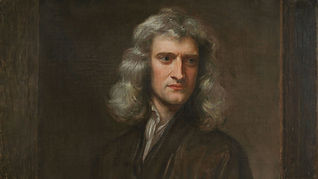Thomas Edison: The Man Behind the Light Bulb and Beyond
Thomas Edison is one of the most famous inventors in history, known for his incredible contributions to technology and society. His journey from a struggling child to a renowned inventor is filled with lessons of perseverance, creativity and determination. This article will explore Edison's life story, highlighting his challenges, achievements and the legacy he left behind.
Thomas Alva Edison was born on February 11, 1847, in Milan, Ohio. He was the youngest of seven children in a modest family. From a young age, Edison was curious and had a keen interest in how things worked. However, he was not good in school. His teachers found him to be restless and difficult to manage, often labelling him as "addled" or mentally ill. This led to him being expelled from school after just three months of formal education.
Edison's mother - Nancy Edison - played a crucial role in his education. She believed in her son’s potential and decided to teach him at home. She encouraged his curiosity and nurtured his love for reading. This support laid the foundation for Edison's future success as an inventor. He often credited his mother for his achievements, stating that her belief in him helped shape his character.
One day when Edison was a child, he returned home with a note from his teacher. He told his mother that the teacher had given it to him to deliver only to her. When she opened the note, she read aloud that her son was a genius and that the school could not provide the education he needed. This moment filled her with pride.
However, many years later, after his mother passed away, Edison found the original note hidden away. To his shock, he discovered that the note actually stated he was "mentally ill" and could no longer attend school. This revelation deeply affected him. In his diary, he wrote: "Thomas Alva Edison was an addled child who became the genius of the century through the love of a heroic mother." This experience taught Edison about the importance of believing in oneself no matter what others may think.
Edison began working at a young age to help support his family. At just 12 years old, he sold newspapers on trains running between Port Huron and Detroit. His entrepreneurial spirit shone through as he turned a profit by selling snacks and newspapers to passengers. At age 15, while working as a telegraph operator for Western Union, Edison saved a child from being hit by a train. The child's father was so grateful that he taught Edison how to operate the telegraph system more effectively. This experience sparked Edison's lifelong fascination with electrical engineering.
By 1868, Edison had moved to New York City where he worked on various inventions related to telegraphy. He created an improved stock ticker which gained him significant financial success—$40,000 for its rights at that time was an enormous sum.
Edison is best known for inventing the incandescent light bulb. However, this invention did not come easily; it was the result of years of experimentation and numerous failures. Before achieving success with the light bulb in 1879, Edison famously failed over 10,000 times while trying to create a practical electric light source. With these many setbacks, Edison kept himself determined. He once said: "I have not failed; I've just found 10,000 ways that won't work." This attitude exemplified his belief in learning from failure rather than being defeated by it.
After countless trials using different materials for filaments and bulbs, Edison finally discovered that carbonized bamboo could burn for over 1,200 hours when used in a vacuum bulb. This breakthrough led to the development of the first commercially viable incandescent light bulb. Edison's public demonstration of the light bulb on December 31, 1879, marked a turning point not only in his career but also in society's use of electricity. His invention revolutionized lighting and paved the way for electric power systems across cities.
In 1876, Edison established his first research lab in Menlo Park, New Jersey—the first institution dedicated solely to technological innovation. Here, he developed many inventions including the phonograph (the first device capable of recording sound) and improvements to the telephone. Edison’s approach to invention was systematic; he employed teams of researchers who worked under his direction to develop new technologies efficiently. His lab became known as "the invention factory," where numerous groundbreaking ideas were born.
Edison continued to innovate throughout his life. Some of his other notable inventions include:
- Phonograph: Invented in 1877; it allowed sound recording and playback.
- Motion Picture Camera: Developed in the late 1890s; it laid the groundwork for modern cinema.
- Alkaline Storage Battery: Created in 1901; this battery type is still used today.
- Throughout his career, Edison received over 1,093 patents for various inventions—many of which are integral to modern life today.
Like any other inspirational story on board, Thomas also faced many challenges along the way. He encountered scepticism from investors and competitors who doubted his ideas or dismissed them as impractical. Additionally, Edison's hearing loss posed significant challenges throughout his life; he lost most of his hearing due to scarlet fever during childhood and later suffered further loss from an accident while working on telegraph equipment. However, these obstacles could not stop him from pursuing his goals. Instead, they fuelled his determination to succeed against all odds.
"There is far more opportunity than there is ability." - Thomas A. Edison, American Inventor
Thomas Edison passed away on October 18, 1931, at the age of 84. His contributions have had an everlasting impact on technology and society as we know it today. The innovations he introduced transformed industries and improved daily life for millions around the world. Edison’s work ethic and philosophy continue to inspire people today. His famous quote: "Genius is one percent inspiration and ninety-nine percent perspiration," emphasizes that hard work is essential for success. In recognition of his contributions, many institutions bear Edison's name including schools and museums dedicated to science and technology education.
The story of Thomas Edison is one of inspiration as to how belief in oneself can lead to incredible achievements despite adversity. His journey from an underestimated child to one of history's greatest inventors serves as a reminder that perseverance can turn dreams into reality. Edison’s legacy lives on through every light bulb that illuminates our homes and every device that records sound or motion—a true genius whose impact will be felt for generations to come. Through understanding Edison's life story, we learn valuable lessons about resilience: never give up, believe in yourself and embrace failure as part of your journey toward success.
We hope you enjoyed reading about the remarkable journey of Thomas Edison! We’d love to know your thoughts, so please feel free to leave a comment below. If you found this article inspiring, consider liking it and sharing it with your friends and family to spread the motivation. Thank you for taking the time to read!












